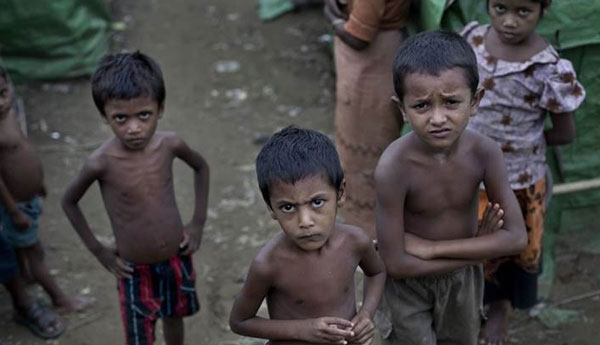Rohingya Crisis: Supreme Court to Hold Final Hearing on Deportation of Refugees Today
The Supreme Court on Monday is likely to hear a petition related to deportation of Rohingya refugees who had fled the persecution in Myanmar last year. A top court bench, headed by Chief Justice of India (CJI) Dipak Misra, will hear the matter wherein the Centre has questioned the credentials of the petitioners seeking to block the deportation of Rohingya refugees, saying the genesis of the PILs threaten to change the country’s demography and destabilise it.
Last month, a bench comprising Misra and Justices A M Khanwilkar and D Y Chandrachud had directed the Centre to file a comprehensive report on the conditions in Rohingya refugee camps across various states, particularly Haryana, Rajasthan and Jammu and Kashmir. The order came after senior advocate Colin Gonsalves claimed that the conditions at the camp are unhygienic and “filthiest to say the least”.
Appearing for petitioner Zaffar Ullah, Gonsalves said the poor and unhygienic conditions had led to several deaths of refugees living in these camps. The senior lawyer urged the apex court to direct the Centre and states to provide better hygienic facilities in these camps.
Earlier this year, the Centre had urged the top court to leave the issue of securing the country’s border to the executive. It also rejected charges that Border Security Force personnel are using “chilli and stun grenades” to turn away Rohingya refugees.
Responding to a petition filed by two Rohingya refugees who accused the BSF of using chilli and stun grenades to push back refugees at the border, the affidavit said the MHA had sought a report from the BSF following this and found that the charges were “false, incorrect and far from truth.” The MHA stated, “it is submitted that no such devices are used either as alleged or otherwise.”
In October last year, SC said the Rohingya refugee problem was of a “great magnitude” and the state would have to play a “big role” while dealing with the contentious issue.
Courtesy – The Indian Express


